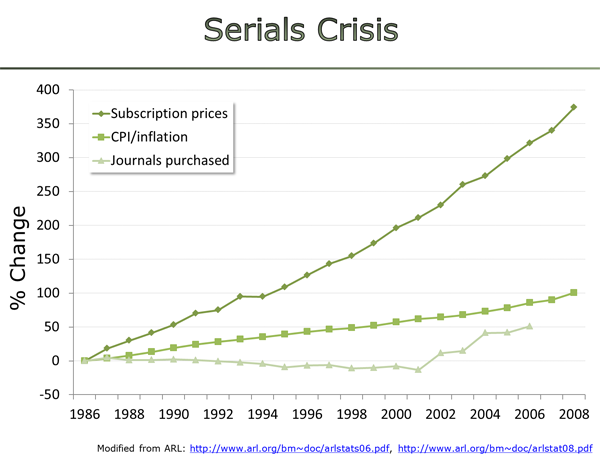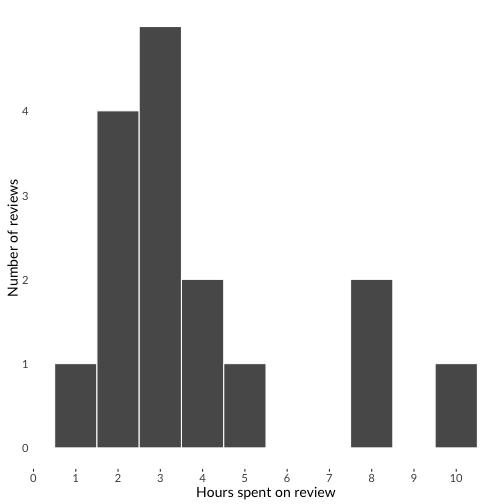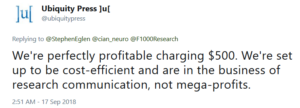After almost 25 years since Stevan Harnad’s “subversive proposal”, now, finally, scholars and the public have a range of avenues at their disposal to access nearly every scholarly article. Public access, while not the default, has finally arrived. Granted, while all of the current options are considered legal for the reader , not all providers of scholarly literature conform to every law in every country.
Postagens de Rogue Scholar
Below, I’ve taken the liberty to “peer-review” recent proposals to ‘flip’ subscription journals to open access The applicants have provided an interesting proposal of how to ‘flip’ the current subscription journals to an article processing charges (APC)-based ‘gold’ open access (OA) model. The authors propose to transition library subscription funds to reimburse author-paid APCs.
Ende Februar ging mir eine Pressemitteilung zu wonach ResearchGate (RG), ein soziales Netzwerk für Wissenschaftler, eine Finanzierung in Höhe von 52,6 Millionen US-Dollar durch Wellcome Trust, Goldman Sachs Investment Partners & Four Rivers Group sowie altbekannte ResearchGate-Investoren wie Bill Gates, Benchmark und Founders Fund erhält.
Starting this year, I will stop traveling to any speaking engagements on open science (or, more generally, infrastructure reform), as long as these events do not entail a clear goal for action. I have several reasons for this decision, most of them boil down to a cost/benefit estimate. The time spent traveling does not seem worth the hardly noticeable benefits any more. I got involved in Open Science more than 10 years ago.
A recurrent topic among faculty and librarians interested in infrastructure reform is the question of whose turn it is to make the next move. Researchers rightfully argue that they cannot submit their work exclusively to modern, open access journals because that would risk their and their employees’ jobs. Librarians, equally correctly, argue that they would cancel subscriptions if faculty wouldn’t complain about ensuing access issues.
I’m happy to announce that I’ve started a project with rOpenSciunder their recent award from the Helmsley Foundation. My work with rOpenSci will focus on sustainability of the project itself. Sustainability can be defined as having theresources to do the necessary work to continue and grow rOpenSci. This is one of the most difficult challenges forrOpenSci and for many other research software projects.

The question in the title is serious: of the ~US$10 billion we collectively pay publishers annually world-wide to hide publicly funded research behind paywalls, we already know that only between 200-800 million go towards actual costs.

Due to ongoing discussions on various (social) media, this is a mash-up of several previous posts on the strategy of ‘flipping’ our current >30k subscription journals to an author-financed open access corporate business model. I consider this article processing charge (APC)-based version of ‘gold’ OA a looming threat that may deteriorate the situation even beyond the abysmal state scholarly publishing is already in right now.

Code review, in which peers manually inspect the source code of softwarewritten by others, is widely recognized as one of the best tools for findingbugs in software. Code review is relatively uncommon in scientific softwaredevelopment, though.

tl;dr: It is a waste to spend more than the equivalent of US$100 in tax funds on a scholarly article. Collectively, the world’s public purse currently spends the equivalent of US$~10b every year on scholarly journal publishing. Dividing that by the roughly two million articles published annually, you arrive at an average cost per scholarly journal article of about US$5,000.